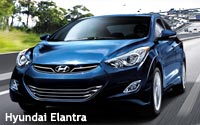automotive
Whether Loyalty Or Retention, It's Critical
- by Karl Greenberg , January 12, 2012

Polk's Loyalty award is about the automakers that have the highest percentage of loyalists. So does J.D. Power's offering, the 2012 Customer Retention Study, but the results are slightly different.
The survey-based study puts Hyundai at the top among a field of 33 brands, with Ford in second (the reverse of Polk's top two), and tied with Honda. The study takes a broad view, noting that one in three new-vehicle owners who switched brands did so not because they hated their vehicle but because their previous brand just didn’t make the type of vehicle they wanted next.
That said, another driver for auto apostasy was dissatisfaction with the previous vehicle, including such issues cost of ownership or maintenance; too many problems with the vehicle; and the vehicle didn’t retain sufficient resale value.
advertisement
advertisement
The study, in its ninth year, is based on responses from 117,001 new-vehicle buyers and lessees, of which 73,733 replaced a vehicle that was previously acquired new. It was fielded during two periods last year.
Raffi Festekjian, director of automotive product research at J.D. Power & Associates, tells Marketing Daily that automakers need to do a balancing act by both keeping retention as close to the ideal 100% as possible, while conquesting as many new owners as possible from competitors. “In general it's important to realize that it's important to have a balanced relationship between retention and conquest. In an ideal world you'd want both numbers to be 100, but achieving that scenario is impossible," he says.
But he adds that Hyundai and Kia have done "A really good job fitting into that relationship between retention and conquest." He says Kia is in the top three in conquest, and Hyundai is in the top five. "So is Fiat, which is a new brand that has just come in [so all of its buyers are conquests], and you have Scion as well."
The industry average for retention improved by one percentage point to 49% in the study. J.D. Power's loyalty leader Hyundai improved its retention rate by four percentage points from 2010 to 64% in 2012, per the study, which says the automaker's retention rate is principally due to loyalty among owners of the Elantra compact sedan and Sonata midsize car.
“Hyundai’s increased retention rate is shaped by its expanding model lineup, as well as the fact that perceptions of the brand’s quality and appeal have continued to improve during the past decade,” said Festekjian.
Ford and Honda had customer retention rates of 60%. As in Polk's findings, Jeep posts the greatest improvement in customer retention rate from 2010. J.D. Power says the Chrysler, LLC unit improved by 17 percentage points to 51% percent in 2012.
Nineteen of the 33 ranked brands improved their customer retention rates from 2010, while 14 have declined, according to the firm.
Not terribly surprising, the study also finds that younger people, those between 23 and 47, are less brand loyal than older consumers and men.
“Women and younger vehicle owners are more likely to experience changes in their life circumstances, including growth in household size or changes in income levels, that would lead them to purchase vehicles that better accommodate their new lifestyle,” said Festekjian.
J.D. Power says Honda, siblings Hyundai and Kia, and Mercedes-Benz do particularly well at retaining women. For Gen X and Y, Ford, Kia, Lexus and Mercedes-Benz perform particularly well in customer retention.




